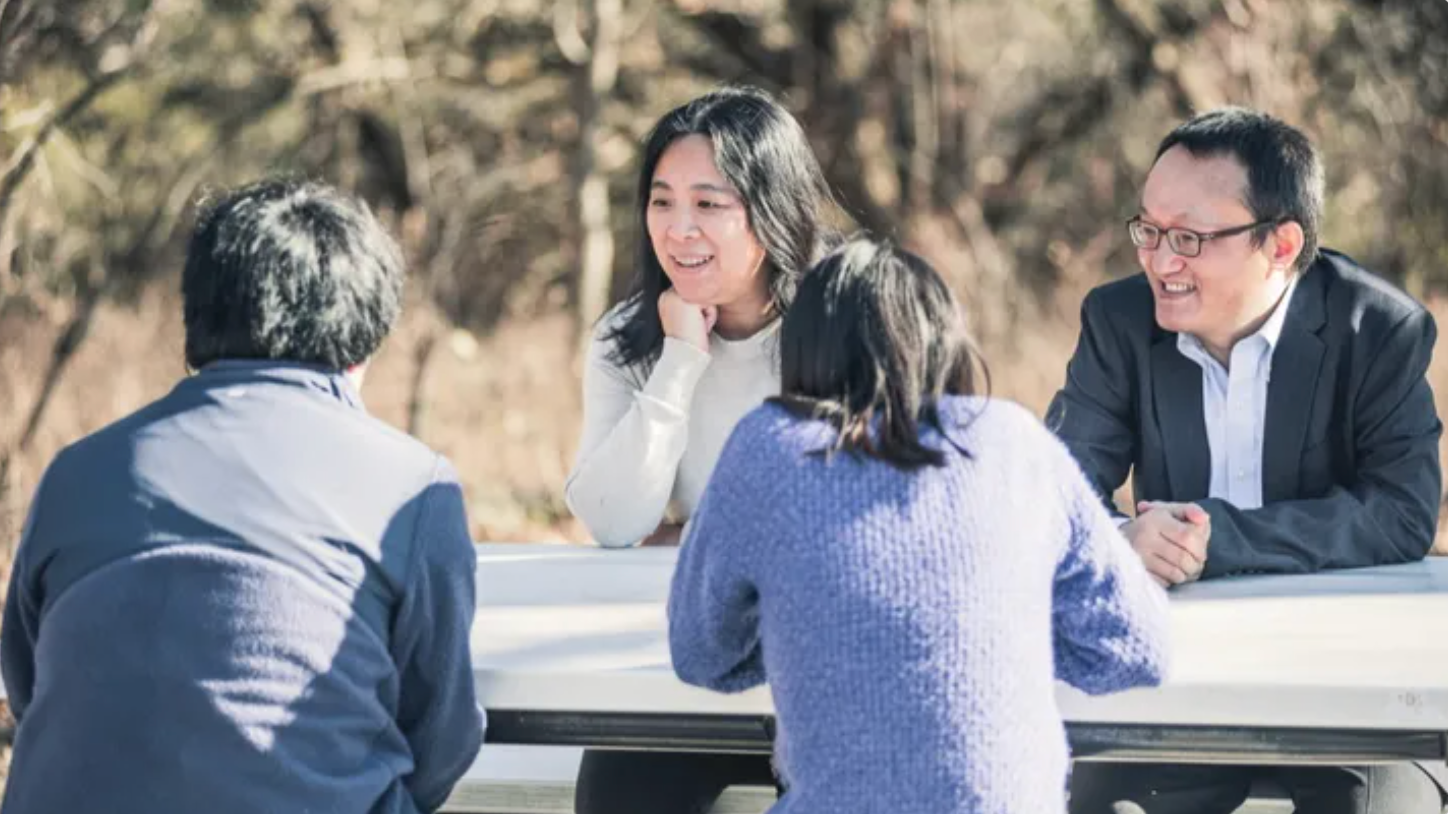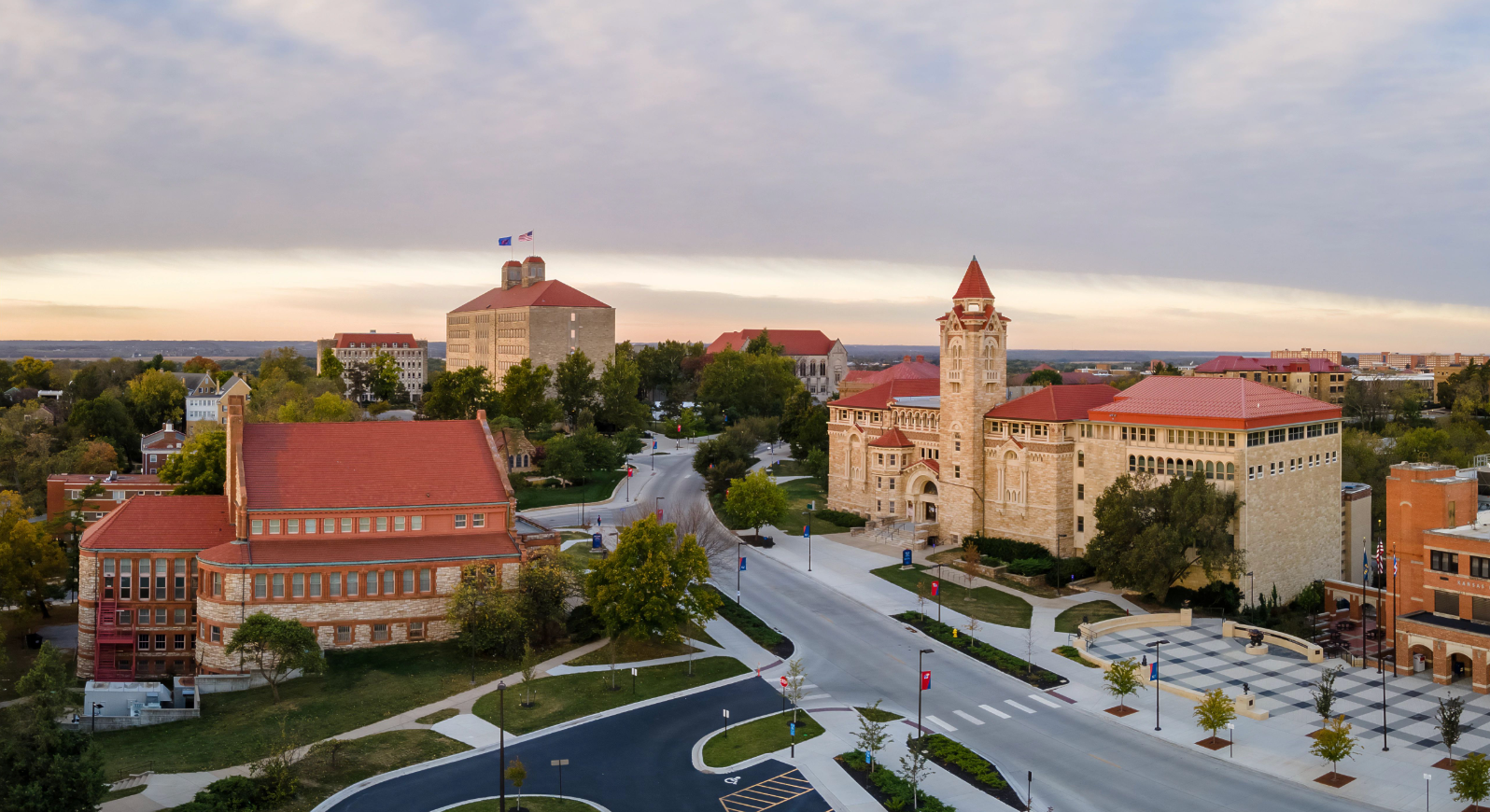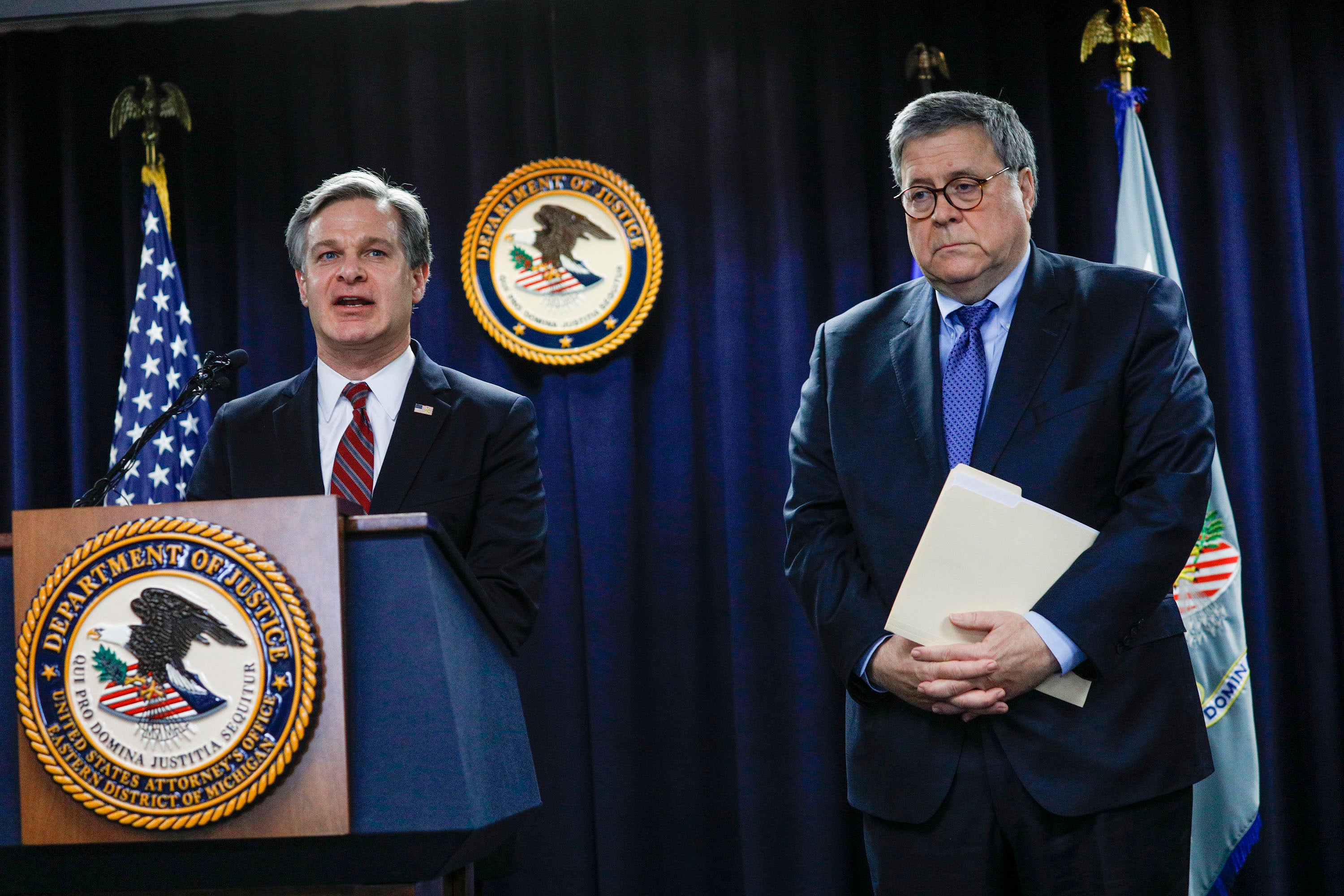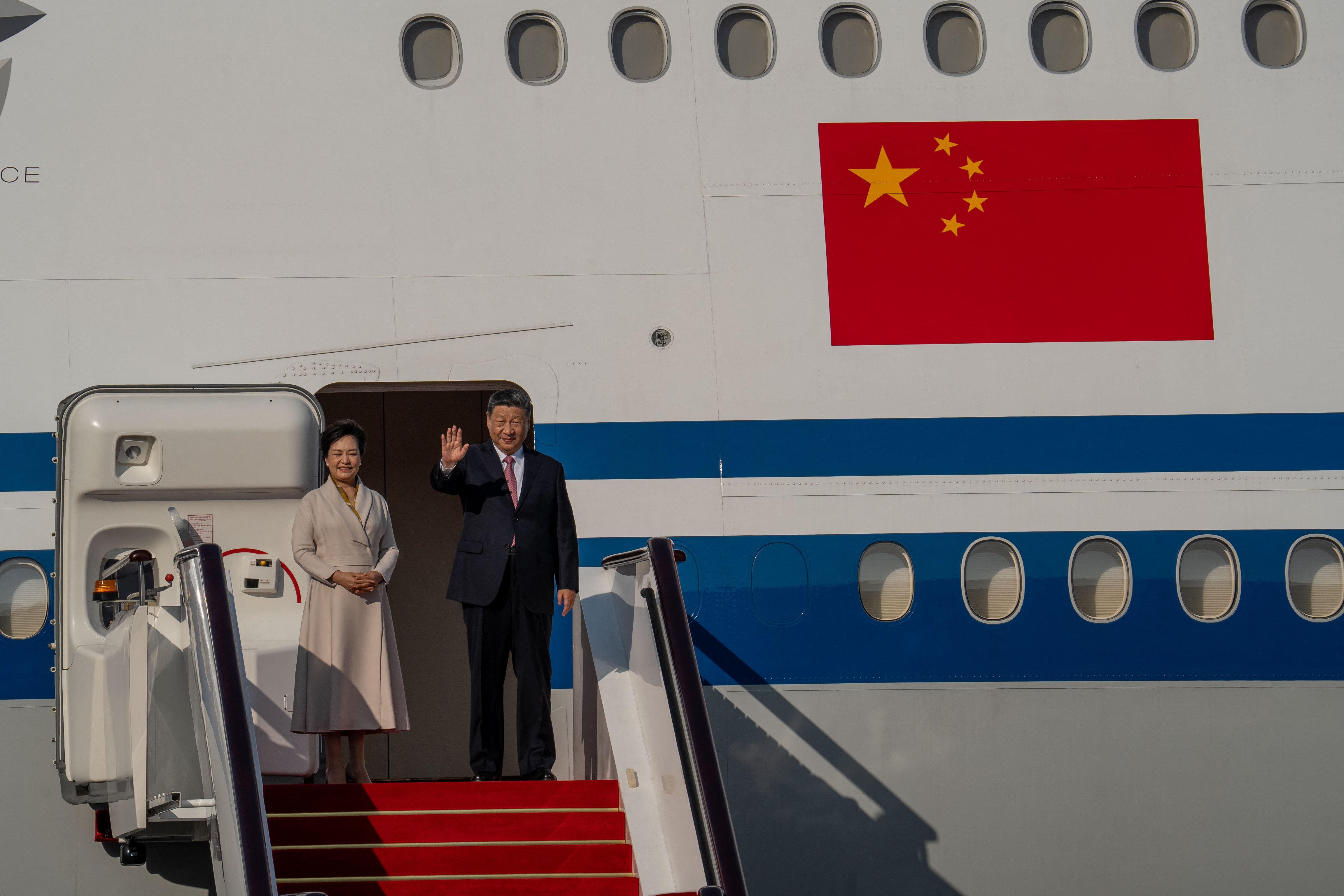Chemist cleared of charges for ‘secret’ China ties sues university for helping Trump DOJ ruin his life
Exclusive: Feng “Franklin” Tao’s “life, career, reputation, and finances are in shambles” thanks to unfounded claims the University of Kansas brought to the FBI, according to a federal lawsuit obtained by The Independent

Your support helps us to tell the story
From reproductive rights to climate change to Big Tech, The Independent is on the ground when the story is developing. Whether it's investigating the financials of Elon Musk's pro-Trump PAC or producing our latest documentary, 'The A Word', which shines a light on the American women fighting for reproductive rights, we know how important it is to parse out the facts from the messaging.
At such a critical moment in US history, we need reporters on the ground. Your donation allows us to keep sending journalists to speak to both sides of the story.
The Independent is trusted by Americans across the entire political spectrum. And unlike many other quality news outlets, we choose not to lock Americans out of our reporting and analysis with paywalls. We believe quality journalism should be available to everyone, paid for by those who can afford it.
Your support makes all the difference.A Chinese-born chemistry professor targeted by the Trump administration — but later cleared — over economic espionage accusations says the University of Kansas improperly reported him to the FBI based solely on the “wild” claims of an aggrieved exchange student trying to extort him for a six-figure sum.
Professor Feng “Franklin” Tao’s “life, career, reputation, and finances are in shambles as a result of KU’s egregious conduct,” according to a federal lawsuit filed Friday and obtained by The Independent.
“Rather than embracing academic rigor and enlightened, critical judgment, the university allowed itself to join in fear mongering and racist witch hunting,” the complaint states, describing “vicious, unabated discrimination” on KU’s part. “It failed its own vision of being a ‘home to innovative research and the constant pursuit of knowledge’ and to be guided by ‘perseverance, positivity, and restless innovation.’ KU was wrong, should be ashamed of its actions, and deserves to be held accountable for the damage it caused to Professor Tao.”
Tao was arrested and jailed in August 2019 upon his return from a trip abroad, convicted in 2022, and acquitted in July 2024. He blames KU for “actively” assisting the government in bringing him down, citing in his complaint, among other things, a text allegedly sent by KU’s deputy general counsel to the FBI after agents initially took him into custody.
“Job well done, gentlemen,” the message read, according to Tao’s complaint. “Congrats, and thanks.”

The Trump DOJ’s “China Initiative” was launched in 2018, and stemmed from largely disproven fears that Chinese academics in the U.S. were covertly funnelling valuable government-supported intellectual property back to China and undercutting American innovation. While there is no doubt that the Chinese government is engaged in ongoing intelligence operations meant to pilfer U.S. technology and know-how, and dozens of Chinese professors were indicted, few of the allegations, particularly those related to any sort of spying, economic or otherwise, held up in court. In the end, the program served largely to dissuade talented Chinese scholars from studying or teaching in the U.S., and the so-called reverse brain drain put America at a significant competitive disadvantage, according to experts. The Biden Administration ended the program in 2022, amid concerns of widespread racial profiling.
Tao was the first person charged under the China Initiative.
“Thanks for reaching out, but our client does not wish to comment at this time,” attorney Karen King, a member of Tao’s legal team, said in an email on Monday. “We will let you know if/when that changes.”
A KU spokesperson did not respond to multiple requests for comment.
Tao moved to the U.S. in 2022 to pursue a PhD in chemistry at Princeton University. He then served as a post-doctoral fellow at the University of California, Berkeley, and in 2010 joined the faculty at the University of Notre Dame.
In 2014, KU recruited Tao as a tenured associate professor in the Department of Chemical and Petroleum Engineering, according to his complaint, which says a dozen of his research projects have received millions in financial support from federal agencies including the National Science Foundation and the U.S. Department of Energy. During his time at KU, Tao received multiple honors for his work, including the University Scholarly Achievement Award for “truly outstanding” contributions, the complaint states.

In 2017, a university in Fujian, China, contacted Tao to gauge his interest in joining the faculty there, the complaint continues. He traveled there with his family to “see if they liked the environment,” but ultimately decided against a move and Tao declined the position, it goes on.
Two years later, a visiting scholar at KU emailed Professor Tao with a complaint about having not received sufficient credit for a scientific paper she had worked on, according to the complaint. The student, who is identified as “the Informant” in Tao’s complaint, “demanded $300,000 from Professor Tao for her allegedly unacknowledged effort and threatened to report him to the FBI for economic espionage if her demands were not met.” But, the complaint contends, “Professor Tao refused to be extorted.”
“On April 30, 2019, the Informant falsely and anonymously reported to KU that Professor Tao was involved in espionage and held another full-time position in China,” the complaint states. “The very next day — without assessing the credibility of the information, without speaking to Professor Tao, and without conducting any investigation of the source, the facts, or the circumstances — KU reported the allegations against Professor Tao to the FBI, describing them as ‘high’ importance.”
The university “thereafter worked closely with the FBI on an investigation of Professor Tao, including unlawful surveillance of Professor Tao, the collection of incomplete and one-sided ‘evidence’ against Professor Tao, and the fabrication of evidence against Professor Tao,” the complaint contends, noting that KU “provided the ‘evidence’ that became central to the government’s eventual charges.”

KU, according to the complaint, neglected to protect Tao and instead “acted as an arm of the government” in destroying him.
“KU… actively worked with the government to look for evidence that could support additional criminal charges against Professor Tao, brainstorm ways to strengthen the government’s case… and share information learned from Professor Tao’s attorneys,” the complaint states.
Tao, prosecutors alleged, had been “secretly” working for the university in Fujian while also working at KU.
Ultimately, the FBI turned up “no evidence of any espionage,” according to the complaint. Yet, it says, the feds continued to pursue criminal charges for allegedly failing to disclose his “tie” to the university in Fujian that had offered him a job. (Tao’s defense attorneys argued that since Tao had not formally accepted the job, he had nothing to disclose.) In June 2020, Tao was indicted on seven counts of wire fraud and three counts of false statements, after which KU placed him on administrative leave and banned him from campus.
“KU threatened to have him arrested if he appeared on campus,” the complaint says.

Tao’s trial began in March 2022, during which KU higher-ups testified against him. The following month, a jury found Tao guilty on three counts of wire fraud and one count of making a false statement, carrying up to 20 years in prison. However, in September 2022, the judge overseeing the proceedings against Tao reversed the wire fraud counts on grounds of insufficient evidence, while upholding his conviction on the single count of making false statements. In January 2023, Tao was sentenced to time served and two years’ probation.
Tao appealed, but was fired by KU while it was pending, contravening its promise to wait until the case had been fully adjudicated. On July 11, 2024, an appeals court overturned Tao’s remaining false statements conviction, finding that the government had floated claims that “border[ed] on misrepresentation.”
In an fundraising request posted on GoFundMe, Hong Peng, Tao’s wife, called the victory “bittersweet.” The cost of fighting the charges came to over $2 million, and with Tao out of work for more than four years at that point, the family found itself deeply in debt, she wrote.
Some two weeks after he was fully cleared, Tao wrote to KU, asking for his job back, according to his complaint. In September, KU reiterated its decision to terminate him.
“To date, KU has not reinstated Professor Tao,” the complaint states.
He is now demanding he be reinstated, plus reimbursement for lost wages, as well as money damages for reputational injury, emotional distress, and pain and suffering, to be determined at trial. KU has not yet filed a formal response to Tao’s claims.